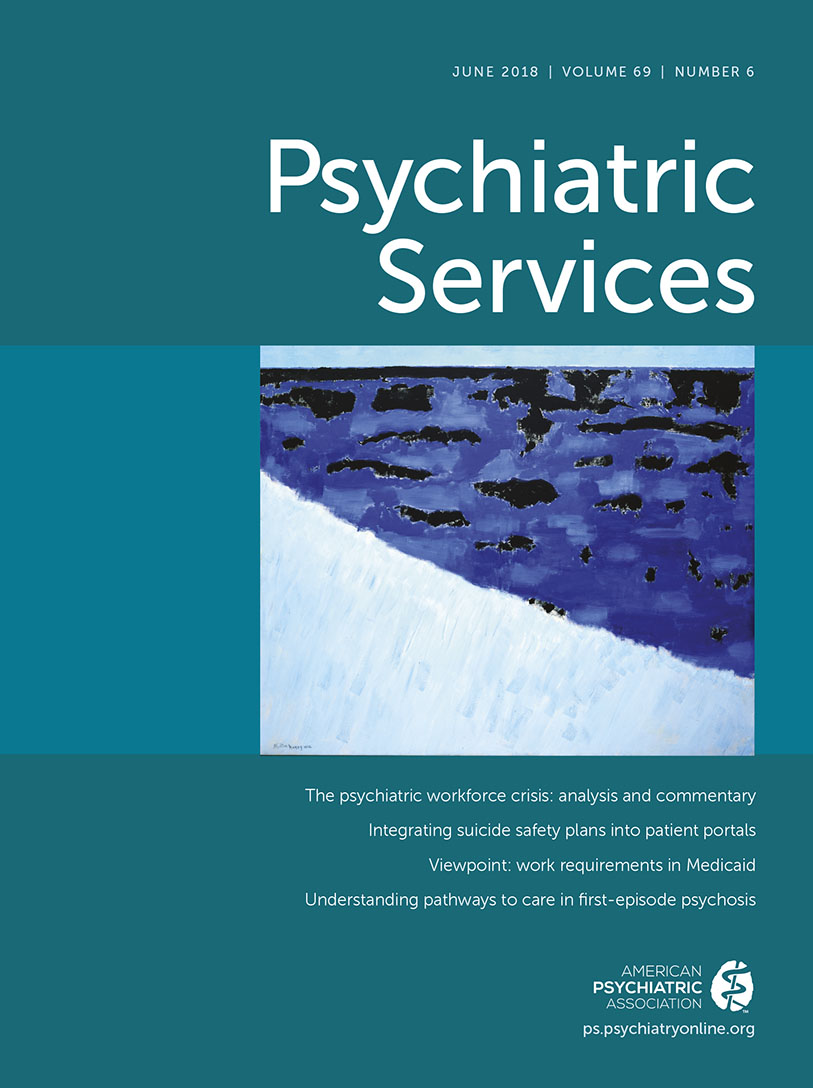Implementation of a Lifestyle Intervention for People With Serious Mental Illness in State-Funded Mental Health Centers
Abstract
Objective:
The purpose of this study was to evaluate health outcomes of a state-supported implementation in community mental health settings of an evidence-based lifestyle intervention for overweight and obese adults with serious mental illness.
Methods:
Weight and fitness outcomes were evaluated for 122 overweight or obese adults with serious mental illness in four community mental health centers (CMHCs) that were participating in a phased statewide implementation of the In SHAPE lifestyle intervention. Six- and 12-month outcomes were compared between two CMHCs that implemented In SHAPE in the first 12 months and two CMHCs with similar characteristics that implemented In SHAPE in a subsequent phase in the statewide implementation 12 months later.
Results:
Participants in the two In SHAPE sites (N=63 participants) lost significantly more weight (p=.003) and showed greater improvement in fitness (p=.011) compared with participants at the two usual care control sites (N=59 participants). At six months, nearly half (49%) of In SHAPE participants and at 12 months more than half (60%) of In SHAPE participants showed clinically significant cardiovascular risk reduction defined as ≥5% weight loss or improved fitness (>50 m [164 feet] increase on the six-minute walk test). The difference between the In SHAPE and control groups was not statistically significant.
Conclusions:
This natural experiment demonstrated promising public health benefits of a practical implementation of health promotion programming for overweight and obese adults with serious mental illness and offers a potential model for reducing risk of early mortality among individuals served by state-funded mental health centers nationwide.




